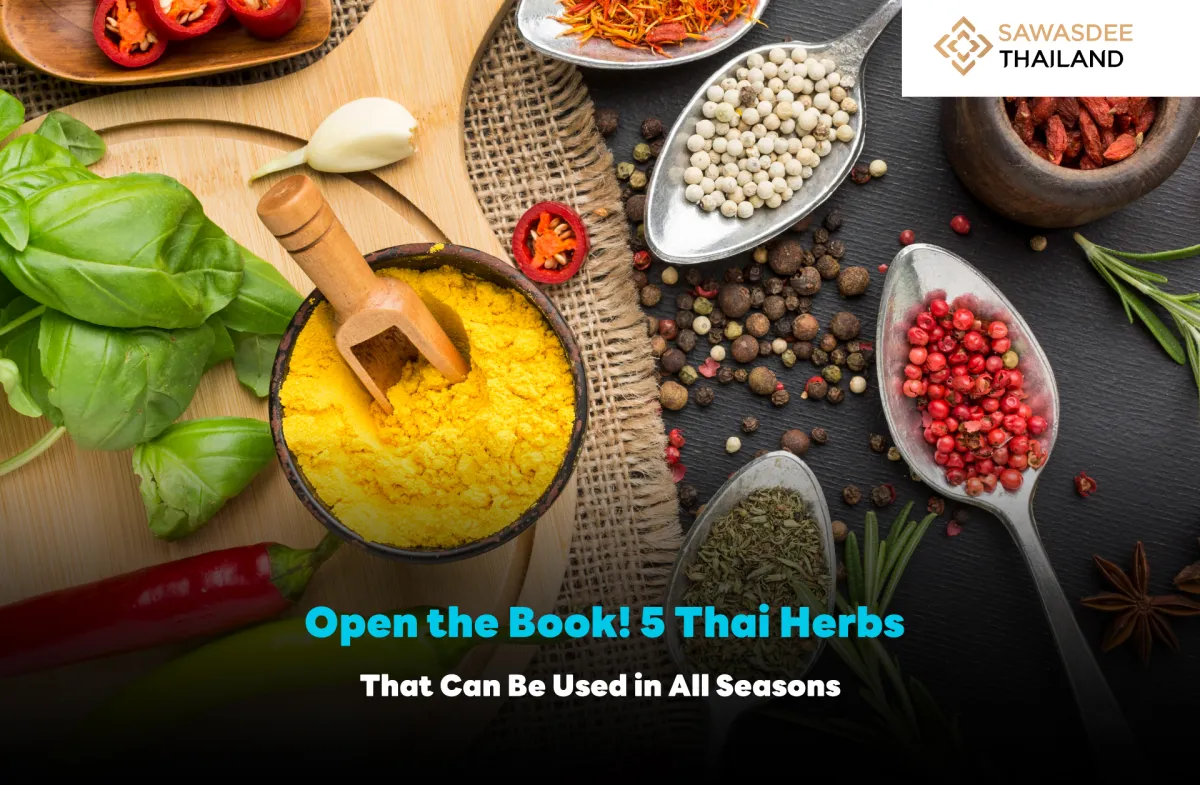Thai herbs are a legacy of wisdom that has been passed down for a long time, used for treating diseases and maintaining health, especially according to the seasons that affect the elemental balance in the body, as per the theory of Thai traditional medicine.
The seasons are divided into three main periods:
- Summer (Kimhanta Ritu): The season of heat and restlessness due to external heat influences, leading to illness. The herb “Tri-Phala,” which consists of Baheda fruit, Haritaki fruit, and Amla fruit, is recommended to help alleviate Pitta (air element) and Vata (fire element) issues.
- Rainy Season (Wasanta Ritu): A season filled with rain where blood circulation may become irregular. It is advised to use “Tri-Kaduk,” which includes ginger rhizome, black pepper seeds, and long pepper flowers, to balance Vata (fire element) and phlegm (water element).
- Winter (Hemanta Ritu): The season when dew falls and the body undergoes significant adjustments due to weather changes, which can lead to illness. The herb “Tri-Sara,” made up of red leadwort root, Sacha Inchi vine, and black pepper root, is used to alleviate phlegm (water element) and Pitta (air element).
To prepare these herbs for consumption to maintain elemental balance, it is recommended to brew herbal teas and drink them twice a day before meals, in the morning and evening. Focus on using them during seasonal transitions and avoid continuous use for extended periods.
For additional information: the Faculty of Traditional Medicine, Prince of Songkla University
Link: https://www.ttmed.psu.ac.th/th/
